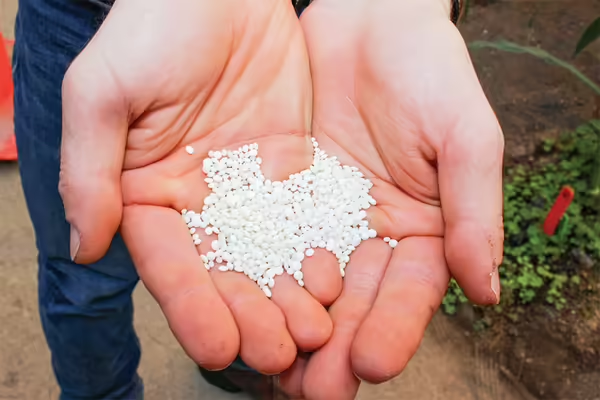
URBANA, Ill. — A promising new form of ammonium phosphate fertilizer has been field-tested by University of Illinois Urbana-Champaign researchers. The fertilizer, struvite, offers a triple win for sustainability and crop production, as it recycles nutrients from wastewater streams, reduces leaching of phosphorus and nitrogen in agricultural soils, and maintains or improves soybean yield compared to conventional phosphorus fertilizers.
“There have been some lab and greenhouse projects showing the potential of struvite, but this is the first field-scale assessment of nutrient loss and yield benefits together,” said principal investigator Andrew Margenot, associate professor and faculty Extension specialist in the Department of Crop Sciences, part of the College of Agricultural, Consumer and Environmental Sciences (ACES) at U. of I. “We found that struvite can be a full substitute for monoammonium phosphate (MAP) or diammonium phosphate (DAP) for soybeans yield-wise, and it reduces nonpoint source nutrient losses relative to conventional fertilizer options.”
His team’s results are published in the Journal of Environmental Quality.
Applying MAP or DAP in the fall as a source of phosphorus for crops is common practice for corn and soybean production in much of the Midwest. But because the phosphorus in MAP and DAP is highly water soluble, much of the nutrient is lost during the ensuing winter and early spring months. Not only can this contribute to downstream nutrient pollution, it also means there may be less phosphorus available in the soil by the time crops are planted in spring.
Read the full release from the College of ACES.
Illinois Extension leads public outreach for University of Illinois by translating research into action plans that allow Illinois families, businesses, and community leaders to solve problems, make informed decisions, and adapt to changes and opportunities. Illinois Extension is part of the University of Illinois Urbana-Champaign College of Agricultural, Consumer and Environmental Sciences.